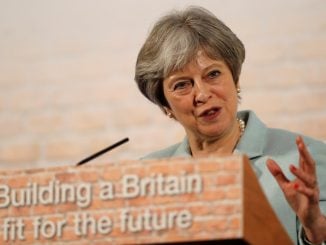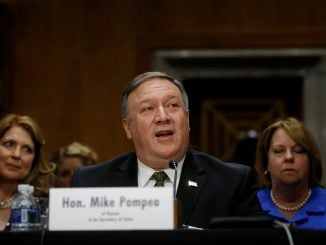GEORGETOWN, Guyana — Guyana voted for a new government in a bruising fight for control of a tiny South American country whose oil revenues in the next decade could make it one of the wealthiest in the hemisphere.
A consortium comprised of ExxonMobil and partners, Hess Oil of the US and CNOOC of China began in late December to pump oil from offshore deposits that so far contain an estimated 8 billion barrels. Guyana in late February sent its own first shipment of 1 million barrels to markets in Asia and the U.S. as part of a production-sharing agreement.
Officials say Guyana will earn $300 million as its share this year, but the figure will jump to $5 billion by 2025, when crude from a third oil field begins to flow. Foreign direct investment from oil-related activities is nearing $1 billion.
Under terms of the deal with Exxon, the nation of fewer than 1 million people gets a 2% royalty and 50% of sales after the consortium recovers its investment from every shipment.
The commercial finds have already brought all of the world’s majors, like Tullow of the U.K., Repsol of Spain and Total of France to the continent’s only English-speaking nation, as well as support companies like Haliburton of the U.S. All plan to drill wells this year.
Members of the governing multiparty coalition led by 74-year-old retired army Gen. David Granger, and supported mainly by descendants of Africans brought to Guyana as slaves, say they will be better stewards of the country’s newfound wealth.
Governing coalition leader Aubrey Norton told The Associated Press that the opposition People’s Progressive Party, supported mostly by Guyanese of East Indian descent brought to Guyana as indentured servants, had an established record of corruption. The PPP was in power for 23 years, until 2015.
“When they were in power and we had little or nothing, they stole terribly. What will prevent them now from stealing again? Oil around the world has been associated with corruption. They simply can’t be trusted with our oil wealth,” Norton said.
PPP presidential candidate Irfaan Ali, a 40-year-old former housing minister, has faced questions about potentially fraudulent academic qualifications but said he is also confident of victory.
Former two-term President Bharrat Jagdeo of the PPP said his party would negotiate far better contracts with incoming oil companies.
“They signed a contract that was so lopsided that the foreigners and those people will benefit from almost everything. We the people will get very little. The oil belongs to the people of Guyana, all 800,000 of us, and it must benefit our people,” Jagdeo said at a recent rally.
More than 2,500 polling stations opened at 6 a.m. on Monday with observer groups from the Commonwealth of former British territories, the Caribbean trading bloc and the Organization of American States.
In December, a ruling-party lawmaker sided with the PPP in a no-confidence motion, erasing the government’s one-seat majority in the 65-member house and forcing it into caretaker status. Parliament has not met for most of the last year and is suspended because of elections. The lawmaker said he was dissatisfied with the government’s performance and denied allegations he was bribed to side with the PPP. He fled to Canada hours after the vote nevertheless.
Both parties have been trying to win over the 10% of the population in indigenous communities near Venezuela and Brazil that function as swing votes.
Tensions between blacks and East Indians Guyanese date back to the era of British plantation slavery. Indians were brought as indentured servants to replace blacks on sugar and other plantations after slaves were emancipated in the 1830s. The Indians were generally treated better than the blacks, spawning resentments that remain to this day. Race riots in the 1960s left more than 150 dead, large parts of the capital were burnt and many Guyanese migrated to North America and Britain.
Both parties have been accused of transferring much of the wealth, state contracts and land to supporters.



